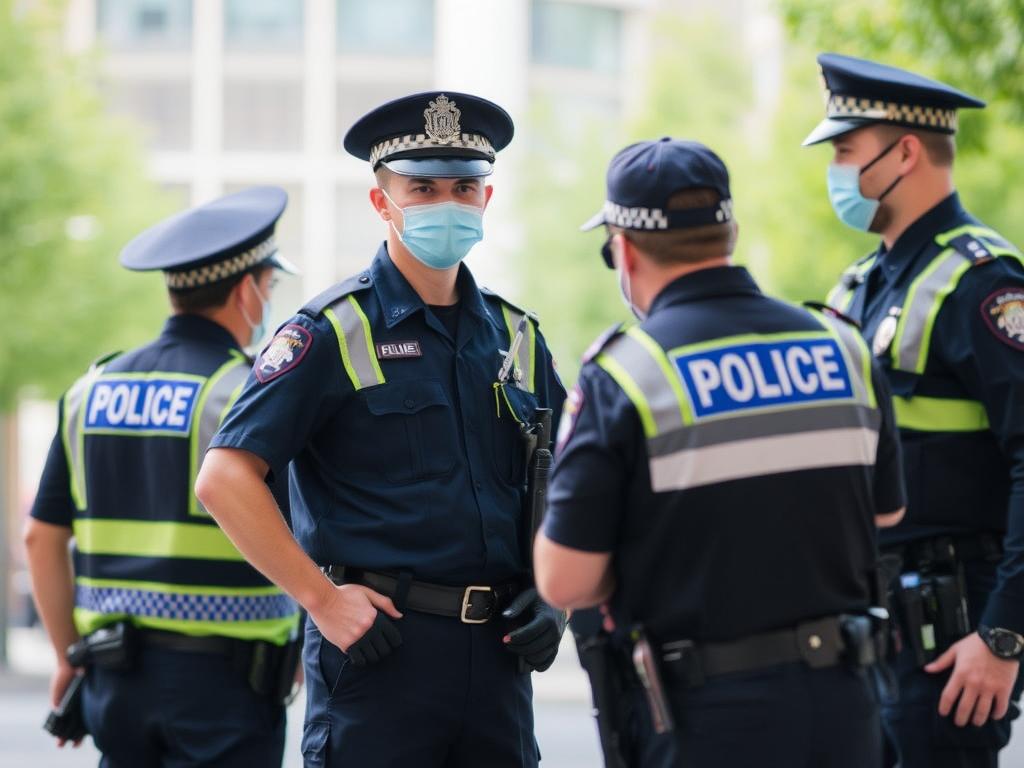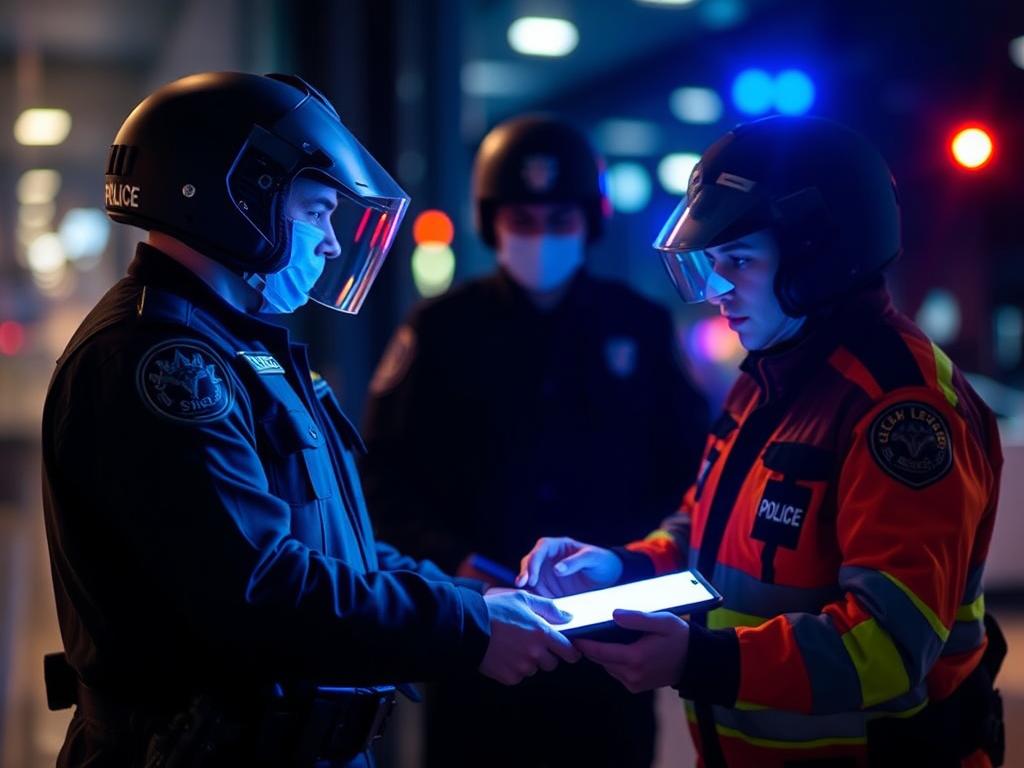When security companies step into the realm of protecting people and property, their collaboration with law enforcement becomes a crucial part of the equation. Understanding how to work effectively with police can elevate a security company’s impact, ensuring that incidents are handled promptly and correctly, while maintaining the safety and professionalism that clients expect. The relationship between private security and police is often nuanced, requiring clear communication, mutual respect, and an ongoing commitment to best practices. This comprehensive guide dives deep into what security firms need to know about working with police, presenting key strategies that bridge the gap between private and public safety efforts.
The Importance of Collaboration Between Security Companies and Police

Security companies act as an extended arm of public safety measures, especially in private spaces like commercial properties, residential communities, and events. However, private security officers don’t have the same authority or powers as police officers, meaning their role is primarily preventative, observational, and reporting related. When incidents arise that require formal law enforcement intervention, effective cooperation with police officers is critical.
The benefits of a strong working relationship are multifaceted. For one, it ensures quicker response times when incidents escalate beyond the scope of security personnel. Second, open communication channels facilitate the proper exchange of information, which can aid in both immediate interventions and ongoing investigations. Finally, this cooperation can enhance community trust, demonstrating that private and public sectors are unified in their commitment to safety.
Building Mutual Respect and Understanding
A foundational element of working with police is building respect on both sides. Law enforcement officers often see security personnel as allies in maintaining order, but this perception depends on security officers conducting themselves professionally and ethically. Security guard companies should invest in training their staff about police protocols, appropriate communication methods, and understanding police terminology.
On the flip side, police departments that engage with security firms benefit from recognizing the unique perspective and on-the-ground knowledge that security personnel bring. When officers approach security personnel with respect and offer guidance when needed, it fosters a much more productive working relationship.
Key Best Practices When Coordinating with Police
The following practices can significantly improve the working relationship between security companies and law enforcement agencies:
1. Establish Clear Communication Protocols
Communication is a cornerstone of any successful partnership. Security companies should develop clear, standardized protocols that detail how and when to contact the police. This includes having designated points of contact, communication tools such as radios or apps, and guidelines for reporting incidents.
When an incident occurs that requires police involvement, security officers must provide accurate, concise information while staying calm. Offering detailed descriptions, incident timelines, and any available evidence (e.g., security footage) can expedite police response and action.
2. Share Relevant Information Proactively
Pre-incident collaboration is just as important as post-incident communication. Security companies that actively share intelligence with police — such as suspicious activities, recurring incidents, or potential threats — help law enforcement plan and allocate resources more effectively.
Many regions have established formal frameworks for such information exchanges, including joint meetings, digital reporting dashboards, and community watch programs. Security firms should seek to participate in these initiatives where available.
3. Joint Training and Drills
Nothing builds teamwork and efficiency better than practice. Organizing regular joint training sessions involving both security personnel and police officers can align expectations and procedures. These sessions might cover scenarios such as crowd control, emergency evacuations, or active shooter situations.
By training together, each party gains insights into the operational challenges and strengths of the other, fostering mutual trust and smoother coordination during real incidents.
4. Define Roles and Responsibilities Clearly
Confusion over roles can undermine effectiveness during critical incidents. Security teams and police should clarify their respective authorities, limitations, and responsibilities before emergencies occur. For example, knowing when a security officer should intervene or wait for police backup prevents unnecessary risks and legal complications.
Agreements such as Memorandums of Understanding (MOUs) between security firms and local police departments often formalize these definitions. Security companies are encouraged to pursue such documents for clarity.
Legal Considerations When Working with Police
Private security companies operate in a complex legal environment governed by local, state, and federal laws. When engaging with police, security companies must be fully aware of legal boundaries to ensure compliance and protect both their personnel and clients.
Some key points to keep in mind include:
- Authority Limits: Security personnel typically have limited powers compared to police, such as making citizen’s arrests under specific conditions.
- Evidence Handling: Ensuring proper chain of custody for any evidence collected is crucial to maintain its admissibility in court.
- Reporting Obligations: Certain incidents, like assaults or thefts, might have mandatory reporting requirements that security must follow in coordination with police.
- Respect for Rights: Security officers must avoid actions that could infringe on individuals’ rights, including unlawful searches or detentions.
Having legal counsel or compliance officers well-versed in security and law enforcement legislation can help a company navigate these responsibilities confidently.
Technology as a Bridge Between Security and Police Operations

Modern technology plays a pivotal role in enhancing collaboration between security companies and police forces. Tools like GPS tracking, mobile apps, and integrated communication platforms improve situational awareness and responsiveness.
For example, many security teams use real-time reporting apps that automatically notify police dispatchers of incidents while providing live updates. Video surveillance systems with remote police access can also speed up investigations and evidence gathering.
Examples of Useful Technology
| Technology | Purpose | Benefits |
|---|---|---|
| Two-Way Radios | Instant communication between security and police | Faster response, clear coordination |
| Incident Reporting Apps | Real-time alerts and documentation | Accurate record-keeping, quick police notification |
| Video Surveillance Integration | Share camera feeds monitored by security | Enhanced evidence collection, better situational awareness |
| GPS Tracking Systems | Track security personnel and patrols | Better resource management, rapid deployment |
By investing in the right technology, security companies can become more effective partners in law enforcement efforts.
Challenges in Security-Police Collaboration and How to Overcome Them
Despite the best intentions, there are common challenges that can hinder the relationship between private security firms and police:
1. Differing Priorities
While police focus on law enforcement and public order, security companies often prioritize client satisfaction and property protection. These different goals can sometimes create tension or misunderstandings about appropriate actions.
Tip: Establishing shared objectives focused on safety and community well-being can bridge this gap.
2. Communication Barriers
Terminology, protocols, or simply a lack of established channels can slow interactions during critical moments.
Tip: Standardizing communication tools and training personnel to understand police language can improve clarity.
3. Jurisdictional Confusion
Security personnel operate within private property boundaries, while police have public jurisdiction. Understanding where one entity’s authority ends and the other’s begins is vital to prevent jurisdictional disputes.
Tip: Use agreements like MOUs and provide legal training to staff highlighting jurisdictional limits.
4. Cultural Differences
Security professionals and police officers come from different backgrounds, training philosophies, and sometimes different organizational cultures. This can lead to stereotyping or mistrust.
Tip: Joint events, team-building exercises, and open forums allow personnel to get to know each other beyond professional roles.
Practical Steps Security Companies Can Take Today
If you are managing or working within a security company, here are some actionable steps to start strengthening police partnerships immediately:
- Initiate Contact: Reach out to your local police department’s community liaison or liaison officers to introduce your company.
- Participate in Crime Watch Programs: Join or support neighborhood watch groups that involve police collaboration.
- Organize Joint Training: Propose and arrange combined training exercises with police.
- Develop Protocols: Draft clear guidelines on incident escalation, communication, and evidence management.
- Invest in Communication Tools: Equip your teams with radios or apps recommended or preferred by police.
- Solicit Feedback: After incidents requiring police involvement, review the process with law enforcement to identify improvements.
Taking these steps demonstrates professionalism, commitment, and a genuine desire to work cooperatively.
Case Studies: Successful Security-Police Partnerships
Understanding real-world examples highlights how effective collaboration plays out in practice.
Case Study 1: Mall Security and Local Police Partnership
A regional shopping mall employed a security company that developed a strong ongoing relationship with the local police department. They shared incident reports daily, coordinated on crowd control during holiday sales, and conducted joint training for robbery response. As a result, the mall reported a measurable decrease in thefts and quicker police response times to incidents.
Case Study 2: Event Security and Police Coordination
During large public festivals, a security firm working alongside police implemented a unified command system. They used integrated radios and a shared incident management app to coordinate patrols and rapid responses. This seamless cooperation led to enhanced attendee safety and positive feedback from law enforcement officials.
Conclusion
Working successfully with police requires security companies to adopt best practices centered around clear communication, mutual respect, and ongoing collaboration. By understanding legal frameworks, investing in joint training, and leveraging technology, security firms can position themselves as vital partners in maintaining public safety. While challenges exist, proactive relationship-building, standardized protocols, and a shared commitment to safety ultimately create a powerful alliance. Security companies that prioritize their cooperation with police not only improve incident outcomes but also contribute to stronger, safer communities overall. This partnership, forged through trust and teamwork, is essential in today’s complex security environment.